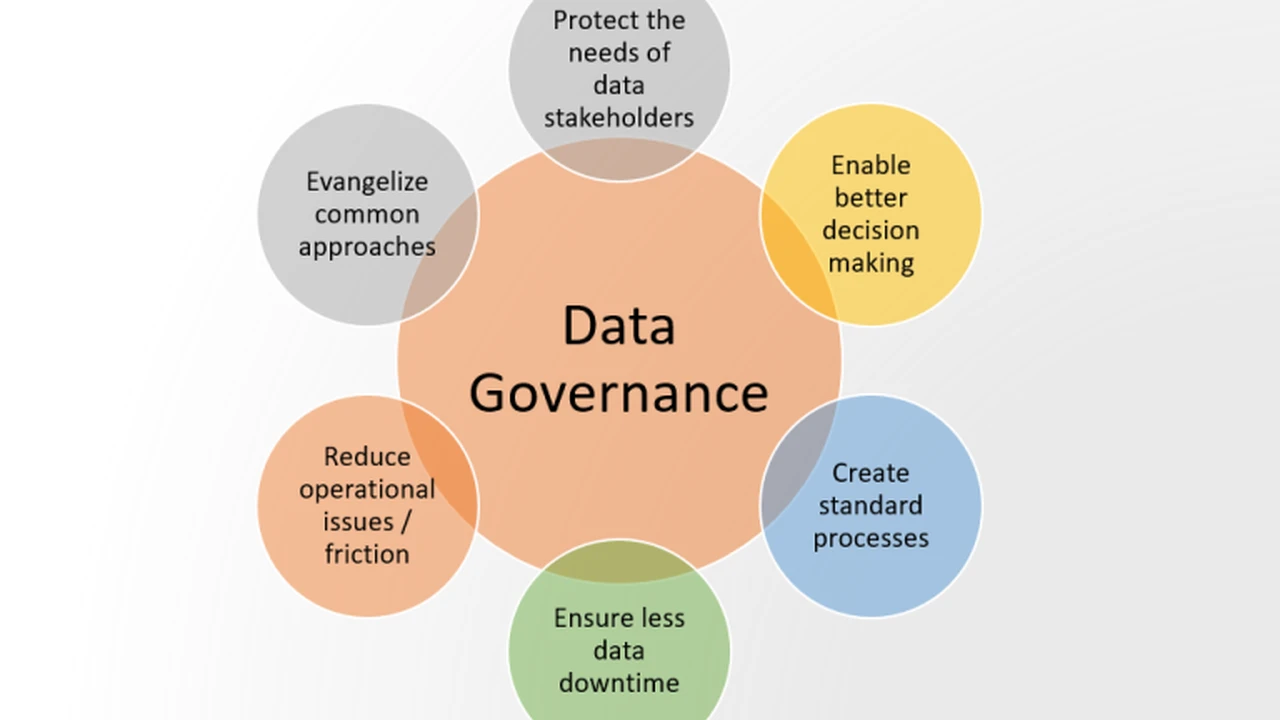Best Online Nursing Programs for Career Changers
Discover top online nursing programs ideal for individuals looking to transition into a rewarding healthcare career.

Discover top online nursing programs ideal for individuals looking to transition into a rewarding healthcare career.
Best Online Nursing Programs for Career Changers
So, you're thinking about a career change, and nursing has caught your eye? That's fantastic! Nursing is a truly rewarding field, offering stability, diverse opportunities, and the chance to make a real difference in people's lives. And guess what? You don't necessarily need to go back to a traditional, on-campus program to make that switch. Online nursing programs have become incredibly sophisticated, offering flexibility and quality education for career changers just like you, whether you're in the US or Southeast Asia.
This guide is all about helping you navigate the world of online nursing education. We'll dive deep into what makes a great program, compare some top contenders, discuss the practicalities like clinicals and costs, and even look at some specific tools and resources that can make your journey smoother. Let's get started!
Understanding Online Nursing Programs for Career Chgers
When we talk about online nursing programs for career changers, we're often looking at specific pathways designed for individuals who already hold a bachelor's degree in a non-nursing field. These are typically:
- Accelerated Bachelor of Science in Nursing (ABSN) Programs: These are intense, fast-paced programs that allow you to earn your BSN in a shorter timeframe (often 12-18 months) because they leverage your previous bachelor's degree. Many ABSN programs have online didactic components combined with in-person clinical rotations.
- Master's Entry Programs (MEPN or MSN Entry): For those who want to go straight to a master's level, these programs are designed for non-nursing bachelor's degree holders to earn an MSN, often preparing them for advanced practice roles like Nurse Practitioner (NP) or Clinical Nurse Specialist (CNS). These are also typically accelerated and blend online coursework with hands-on clinicals.
- RN to BSN Programs: While not strictly for career changers from non-nursing fields, if you're already an Associate Degree in Nursing (ADN) holder and want to advance your education, online RN to BSN programs are incredibly popular and flexible.
The key takeaway here is that 'online' doesn't always mean '100% at home.' Nursing is a hands-on profession, so clinical experience is non-negotiable. Online programs typically deliver the theoretical coursework virtually, allowing you to study at your own pace and on your own schedule, while arranging for in-person clinical rotations at healthcare facilities near you or at designated sites.
Key Factors to Consider When Choosing an Online Nursing Program for Career Changers
Before you even start looking at specific programs, it's crucial to understand what makes a good fit for you. Here are the big things to keep in mind:
Accreditation and Program Quality for Online Nursing Degrees
This is non-negotiable. For nursing, you need to ensure the program is accredited by either the Accreditation Commission for Education in Nursing (ACEN) or the Commission on Collegiate Nursing Education (CCNE) in the US. For Southeast Asia, look for recognition by relevant national nursing boards or ministries of health. Accreditation ensures the program meets rigorous educational standards and that your degree will be recognized for licensure and future employment. Without it, your degree might be worthless.
Clinical Placement Support for Online Nursing Students
This is often the biggest hurdle for online nursing students, especially career changers. Some programs have robust clinical placement teams that will find and secure clinical sites for you. Others require you to find your own preceptors and facilities, which can be incredibly challenging. Ask detailed questions about how clinical placements are handled, especially if you're in a less populated area or looking to complete clinicals internationally.
Program Format and Flexibility for Career Changers
How is the online content delivered? Is it synchronous (live online classes) or asynchronous (self-paced modules)? What's the typical weekly time commitment? How long does the program take to complete? Consider your current work and family commitments. An accelerated program might get you into the field faster, but it demands a significant time investment.
Cost and Financial Aid for Online Nursing Education
Online programs can sometimes be more affordable than traditional ones, but tuition still varies widely. Factor in not just tuition, but also fees, books, technology requirements, and potential travel for clinicals or intensives. Explore financial aid options, scholarships specifically for career changers, and employer tuition reimbursement programs.
Student Support Services for Online Learners
As an online student, you'll want strong support. Look for programs that offer dedicated academic advisors, technical support, career services, and mental health resources. A strong online community or peer support groups can also make a huge difference.
Top Online Nursing Programs for Career Changers A Comparative Review
Let's look at some highly-regarded institutions offering online or hybrid nursing programs suitable for career changers. Keep in mind that program availability and specific requirements can change, so always check the university's official website.
University of Rochester School of Nursing Accelerated BSN Program
- Overview: The University of Rochester offers a highly respected 12-month Accelerated BSN program. While it has a significant on-campus component for labs and clinicals, much of the didactic coursework can be completed online or in a hybrid format. It's known for its strong clinical partnerships and research focus.
- Target Audience: Individuals with a bachelor's degree in any field looking for a fast-track to RN licensure.
- Pros: Excellent reputation, strong clinical placements, comprehensive curriculum, prepares students for advanced practice.
- Cons: Very intensive and demanding, requires relocation or significant commute for on-campus components, competitive admission.
- Estimated Cost: Tuition can be upwards of $60,000 - $70,000 for the entire program, not including living expenses.
Johns Hopkins University School of Nursing MSN Entry into Nursing Program
- Overview: Johns Hopkins offers a highly competitive and prestigious Master of Science in Nursing (MSN) Entry into Nursing program for non-nursing bachelor's degree holders. This program prepares graduates for both RN licensure and advanced practice roles. It's a hybrid program with online coursework and in-person clinicals and intensives.
- Target Audience: Ambitious career changers with a strong academic record who aspire to advanced nursing roles.
- Pros: World-renowned institution, excellent faculty, strong research opportunities, prepares for leadership and advanced practice.
- Cons: Extremely competitive, high cost, demanding curriculum, requires some on-campus presence.
- Estimated Cost: Tuition can exceed $80,000 - $90,000 for the program.
University of Massachusetts Amherst Accelerated BSN Program
- Overview: UMass Amherst offers an Accelerated BSN program that blends online learning with in-person clinical experiences. It's a well-regarded public university option, often more accessible than private institutions.
- Target Audience: Career changers seeking a quality BSN from a public university, often with a strong regional presence for clinicals.
- Pros: Reputable public university, potentially more affordable than private options, good clinical network.
- Cons: Still requires significant in-person clinicals, can be competitive, program length varies.
- Estimated Cost: In-state tuition can be around $30,000 - $40,000, out-of-state higher.
Western Governors University WGU Online BSN Program
- Overview: WGU is a fully online, competency-based university. While their traditional BSN is for those without a prior degree, their RN to BSN program is incredibly popular for ADN-prepared nurses. For career changers, they might offer pathways or accept transfer credits that make their BSN more accessible. Their model is highly flexible, allowing students to accelerate their studies.
- Target Audience: Highly self-motivated individuals who thrive in a self-paced, competency-based learning environment.
- Pros: Extremely flexible, competency-based (can accelerate), generally more affordable, strong student support.
- Cons: Requires strong self-discipline, clinicals still need to be arranged (though WGU assists), not a traditional classroom experience.
- Estimated Cost: Tuition is typically charged per 6-month term, around $3,500 - $4,500 per term, making it very cost-effective if you accelerate.
Purdue University Global Online ABSN Program
- Overview: Purdue Global offers an online ABSN program designed for those with a non-nursing bachelor's degree. It combines online coursework with in-person clinicals and labs, often leveraging partnerships with healthcare facilities across the US.
- Target Audience: Career changers seeking a flexible online ABSN from a well-known university system.
- Pros: Flexibility of online learning, part of the Purdue University system, dedicated clinical placement team.
- Cons: Can be expensive, requires commitment to clinicals, some students prefer a more traditional university experience.
- Estimated Cost: Tuition can range from $40,000 - $60,000 for the program.
Essential Tools and Resources for Online Nursing Students and Career Changers
Beyond the academic program itself, certain tools and resources can significantly enhance your online nursing education journey. Think of these as your digital toolkit for success.
Learning Management Systems LMS for Online Nursing Education
Your university will use an LMS to deliver course content. Common ones include:
- Canvas: Widely used, user-friendly, and offers robust features for discussions, assignments, and grading. Many universities, including those with online nursing programs, rely on Canvas.
- Blackboard: Another very common LMS, offering similar functionalities to Canvas. You'll likely encounter one of these two.
- Moodle: Open-source and customizable, Moodle is also used by many institutions, particularly those that prefer more control over their learning environment.
Usage Scenario: You'll log into your LMS daily to access lecture videos, readings, submit assignments, participate in discussion forums, and check your grades. Familiarize yourself with its navigation early on.
Digital Textbooks and E-Resources for Nursing Students
Gone are the days of lugging around heavy textbooks. Most programs now use digital versions or provide access to extensive online libraries.
- Elsevier Evolve/Sherpath: Many nursing programs use Elsevier's platforms for textbooks, adaptive quizzing, and simulation tools. Sherpath, for example, offers personalized learning paths.
- Lippincott CoursePoint+: Similar to Elsevier, Lippincott provides integrated digital textbooks, practice questions, and interactive case studies.
- UpToDate: An evidence-based clinical decision support resource. While not a textbook, it's invaluable for looking up current best practices and disease information during your studies and clinicals.
Usage Scenario: Instead of buying physical books, you'll subscribe to or be granted access to these platforms. You can highlight, take notes, and search within the digital texts. UpToDate is perfect for quickly researching a patient's condition or medication during clinical preparation.
Virtual Simulation and Clinical Preparation Tools
Since much of your didactic learning is online, virtual tools help bridge the gap to hands-on clinicals.
- Shadow Health (Digital Clinical Experiences): This platform offers virtual patient simulations where you interact with digital patients, conduct assessments, and develop care plans. It's incredibly realistic and helps you practice critical thinking.
- Laerdal SimMan/SimMom (High-Fidelity Manikins): While these are physical manikins, many online programs use them in their on-campus lab intensives. They simulate human physiological responses, allowing you to practice skills in a safe environment.
- ATI Testing (Assessment Technologies Institute): ATI provides comprehensive testing and remediation programs, including practice exams for the NCLEX (the national licensure exam). Many programs integrate ATI throughout their curriculum.
Usage Scenario: You might complete a Shadow Health assignment weekly to practice patient assessment. During an on-campus intensive, you'd work with SimMan to practice IV insertion or code scenarios. ATI will be your best friend for NCLEX prep.
Communication and Collaboration Tools for Online Nursing Students
Staying connected with peers and instructors is vital for online success.
- Zoom/Microsoft Teams: For live lectures, group meetings, and virtual office hours.
- Slack/Discord: Many student groups create informal channels on these platforms for quick questions, study groups, and peer support.
- Google Workspace/Microsoft 365: For collaborative document creation (e.g., group projects, study guides) and cloud storage.
Usage Scenario: You'll attend a weekly Zoom lecture, then jump into a Slack channel to ask a classmate about a confusing concept. For a group presentation, you'll collaborate on a Google Doc.
Productivity and Organization Apps for Online Nursing Students
Managing your time and tasks is paramount in an accelerated online program.
- Evernote/OneNote: For taking and organizing notes, clipping articles, and creating study guides.
- Todoist/Asana: Task management apps to keep track of assignments, deadlines, and clinical requirements.
- Google Calendar/Outlook Calendar: Essential for scheduling classes, study blocks, clinical shifts, and personal appointments.
Usage Scenario: You'll use Evernote to create detailed notes from lectures, then add upcoming assignments to Todoist. Your Google Calendar will be color-coded for classes, study, and clinicals.
Navigating Clinicals and Licensure for Online Nursing Graduates
As mentioned, clinicals are a critical part of any nursing program. For online career changers, this often means a hybrid approach. You'll complete your theoretical coursework online, but you'll need to participate in hands-on labs and supervised clinical rotations in person. These might be at hospitals, clinics, long-term care facilities, or community health centers.
Clinical Placement: Some online programs have dedicated clinical placement coordinators who work with you to find suitable sites and preceptors (experienced nurses who supervise you). Other programs require you to find your own, which can be a significant challenge. Always clarify this before enrolling.
Licensure: After graduating from an accredited program, you'll need to pass the NCLEX-RN (National Council Licensure Examination for Registered Nurses) in the US. Each state's Board of Nursing has specific requirements for licensure, so it's crucial to check the requirements of the state where you plan to practice. For Southeast Asia, similar national licensure exams and board registrations will apply.
Career Opportunities After Earning an Online Nursing Degree as a Career Changer
The beauty of nursing is its versatility. Once you've earned your BSN and passed the NCLEX, a world of opportunities opens up. As a career changer, your previous experience can even be an asset, bringing a unique perspective to patient care.
- Hospital Settings: Med-Surg, ICU, ER, Pediatrics, Oncology, Labor & Delivery – the options are vast.
- Outpatient Clinics: Physician's offices, specialty clinics, urgent care centers.
- Community Health: Public health departments, school nursing, home health.
- Specialty Areas: Informatics, research, education, case management.
- Advanced Practice: With an MSN, you can become a Nurse Practitioner (NP), Clinical Nurse Specialist (CNS), Certified Nurse Midwife (CNM), or Certified Registered Nurse Anesthetist (CRNA).
The demand for nurses remains high globally, particularly in the US and many parts of Southeast Asia. An online nursing degree provides a flexible and efficient pathway to enter this in-demand and deeply fulfilling profession.
Tips for Success as an Online Nursing Student and Career Changer
Making a career change and pursuing an online nursing degree is a big undertaking. Here are some tips to help you thrive:
- Time Management is Key: Treat your online studies like a job. Create a strict schedule and stick to it. Block out dedicated study times and protect them.
- Stay Organized: Use digital tools (like those mentioned above) to keep track of assignments, deadlines, and clinical requirements.
- Proactive Communication: Don't hesitate to reach out to instructors, academic advisors, or clinical coordinators if you have questions or encounter challenges.
- Build a Support System: Connect with classmates, join online study groups, and lean on friends and family. You don't have to do this alone.
- Prioritize Self-Care: Accelerated programs are intense. Make sure you're eating well, getting enough sleep, and taking breaks to avoid burnout.
- Embrace Technology: Get comfortable with your LMS, virtual simulation tools, and communication platforms. They are your primary learning environment.
- Be Adaptable: Online learning requires flexibility. Be prepared for unexpected technical glitches or changes in clinical schedules.
Transitioning to nursing through an online program is a challenging but incredibly rewarding path. With the right program, the right tools, and a strong commitment, you can successfully make the switch and embark on a fulfilling career in healthcare.
:max_bytes(150000):strip_icc()/277019-baked-pork-chops-with-cream-of-mushroom-soup-DDMFS-beauty-4x3-BG-7505-5762b731cf30447d9cbbbbbf387beafa.jpg)






